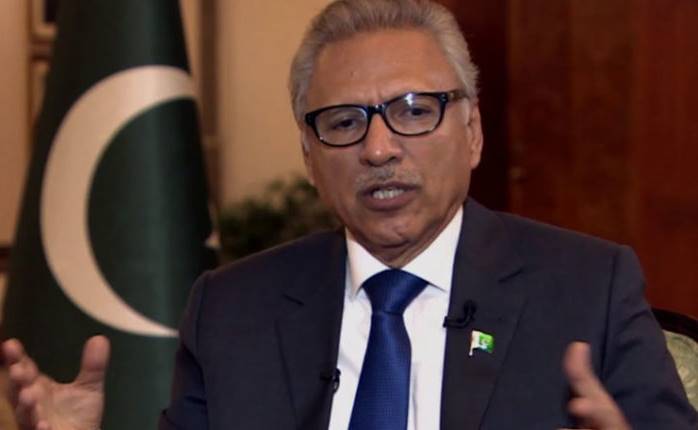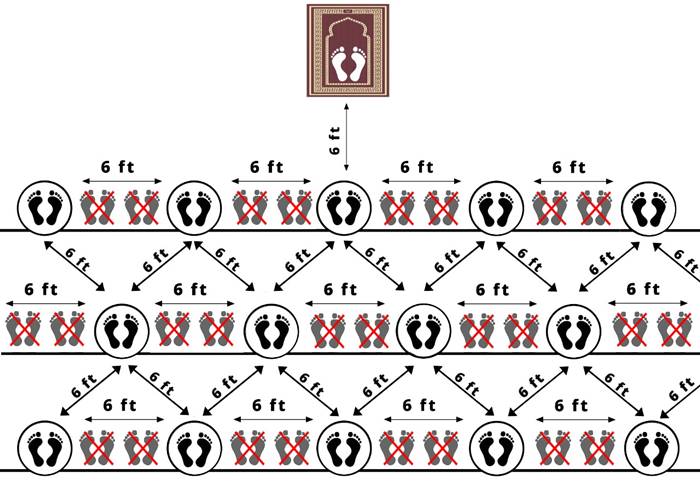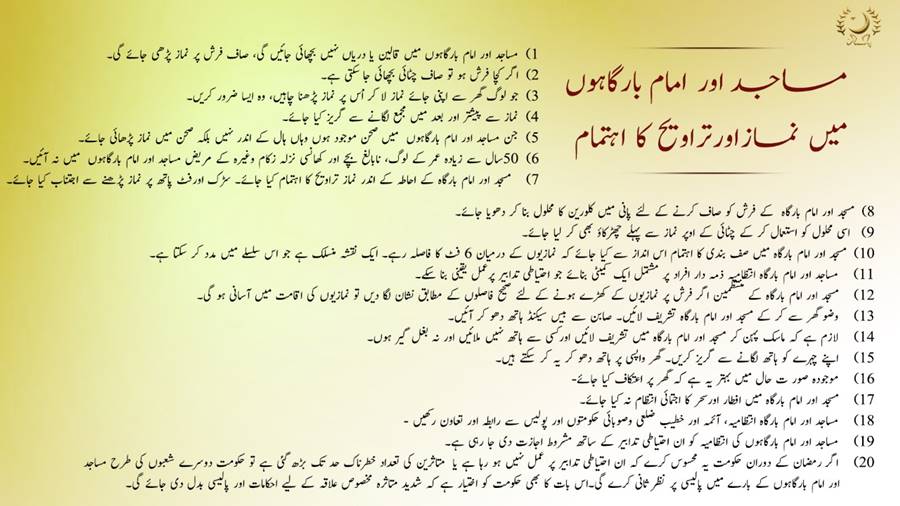President Arif Alvi chaired a meeting today with the top religious scholars of the country to discuss the matter of congregational prayers and it was decided that Mosques will remain open during Ramazan for congregational and Taraweeh prayers.

In order to curb the spread of the coronavirus President Arif Alvi disclosed a twenty points strategy decided in the meeting after a consensus with the religious scholars and provincial governments keeping in view the precautionary measures laid down by the World Health Organization (WHO).
However, it was also mentioned if these precautionary measures are not being followed or in case there is an increase in the number of coronavirus cases then the government can review these recommendations down the line.
Read more: SHC rejects petition filed against restriction on congregational prayers.
Mosques will remain open during Ramazan but the precautionary measures will be followed that include removal of carpets from mosques and Imam Bargahs so that prayers will be offered on the floor on the Mosque to avoid infection from carpets as the virus can survive on carpets longer. It was also decided that the floors of Mosques will be washed with chlorine water.
The people are to maintain a six feet distance between themselves while offering prayers and this also includes Taraweeh and in such a case where the mosque has an open lawn, prayers are to be conducted outside and not in the hall.

However, for Taraweeh prayers it was decided that it will be carried out within the Mosque premises and not on roads on footpath however, if there is open open lawn within the premises, that can be used instead of the hall.
People are required to perform ablution at home and wash hands for 20 seconds and remember to put on their face masks before leaving their homes. Everyone is required to maintain social distance and all sorts of gatherings are banned before and after prayers. There will also be no gatherings for Iftar and Sehr during Ramazan.
President Arif Alvi said that children and people above the age of 50 will not be allowed in the mosque as well those who are suffering from any kind of illness including flu, fever and cough will not come to the mosques for prayers.

The Mosques are to set up committees ensuring proper implementation of these precautionary measures and the administrations of these mosques along with Imams are required to stay in touch with the district and provincial governments.
In any such case where these measures are not being followed or there is a sharp increase in the number of coronavirus cases, the government has the right to change its decision on the matter.
Read more: Foreign Office slams Indian army chief for irresponsible allegations.









